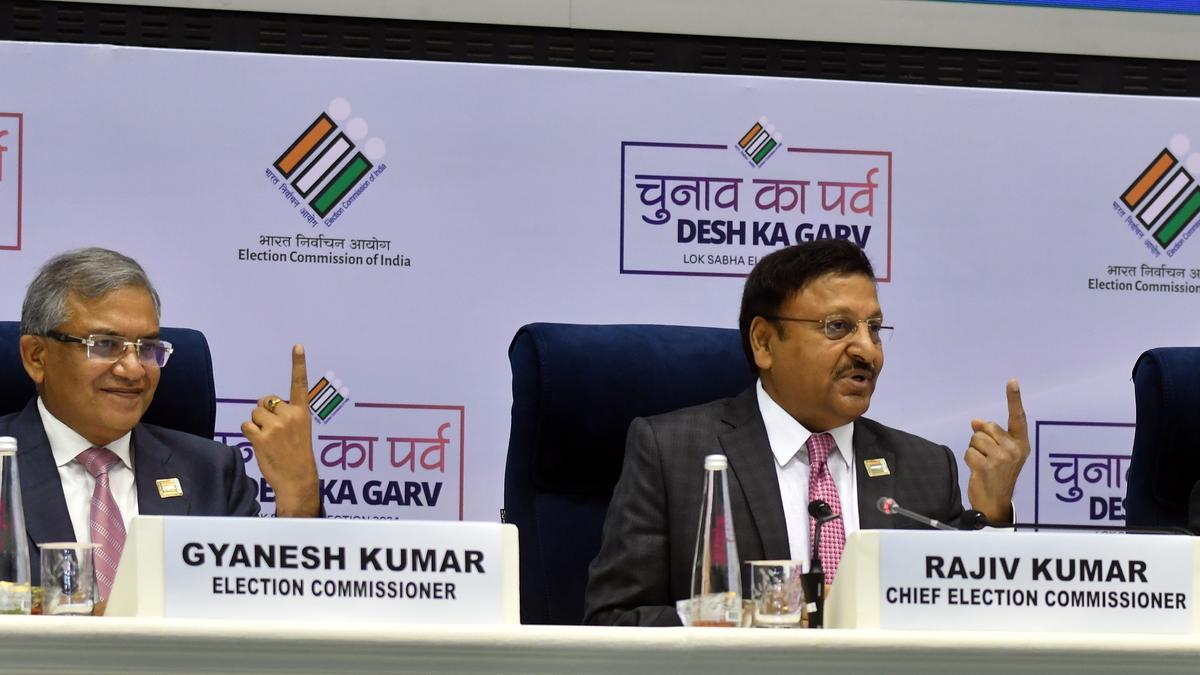
Election Commission always in favour of transparency, but must also protect donors’ privacy: CEC on electoral bonds scheme
The Hindu
Rajiv Kumar said that the Election Commission of India has always been in favour of transparency, but added that there was a need to ensure that the donors’ privacy is protected.
Amid the storm over the scrapping of the electoral bonds scheme and its donor data being made public, Chief Election Commissioner Rajiv Kumar said that the Election Commission of India has always been in favour of transparency, but added that there was a need to ensure that the donors’ privacy is protected.
“As far as electoral bonds are concerned, the Commission has always been in favour of transparency,” Mr. Kumar said, at a press conference to announce the dates of the upcoming Lok Sabha election.
The CEC said that, in a democracy, there was no scope for hiding things; it is all about making everybody know. “’We are all for transparency. This is the first part of the exercise, that it must be known. The country now has to ask and find solutions through an institutional mechanism where the donors’ privacy is also considered,” he said.
The electoral bonds scheme was struck down by the Supreme Court in a landmark verdict on February 15 that termed the scheme “unconstitutional”. The court had also directed the State Bank of India to provide the ECI with all the data related to the scheme’s donors and recipients, so that it could be made public.
On March 14, the ECI uploaded to its website two separate sets of data on the donors who purchased bonds, and the political parties which encashed them.
The Supreme Court, however, has asked the SBI why the unique alphanumeric numbers of each electoral bond was not provided in the data. The case is scheduled to be heard on Monday.
On Saturday, the CEC said: “The unaccounted money which is used in the elections... during the elections, we are very particular to control it. But how do we also control the donations in the unaccounted form is something which the entire nation needs to work [out] together... [so that] the donor’s privacy is also protected, so he is not harassed, how the money is channelised, and how it is more and more white.”











